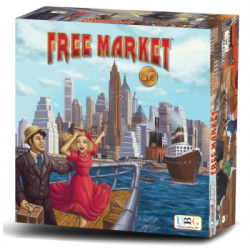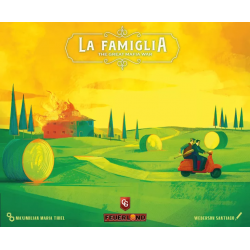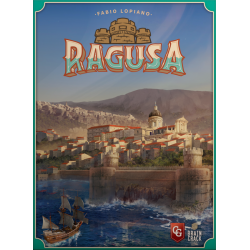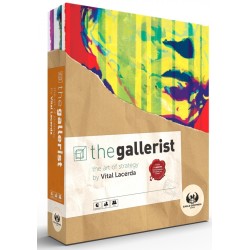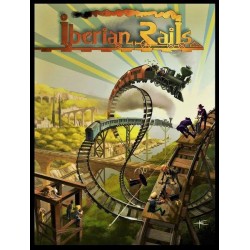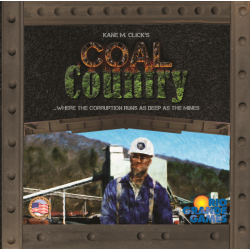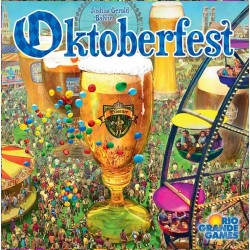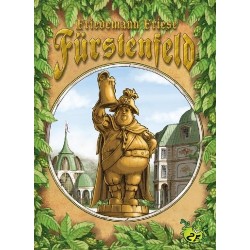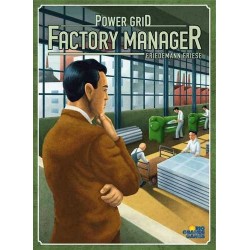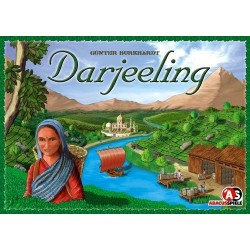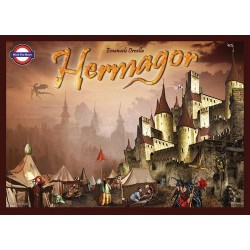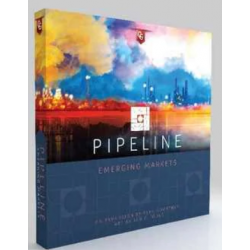No products in the cart.
Free Market: NYC
FREE MARKET: NYC is a competitive and strategic board game based on the principles of a free market economy, presented from a humorous and ironic perspective of life.
In this game, you will find yourself managing a group of people who work together in different assignments, aiming to grow their fortune according to your vision.
La Famiglia: The Great Mafia War
In the 1980s, a merciless battle raged in Sicily that would later go down in history as "The Great Mafia War". Different mob families fought with and against each other for supremacy in southern Italy.
Ragusa
Ragusa
Set in the legendary city of Ragusa (now Dubrovnik), Ragusa charges players with the task of building the city in the 15th century, constructing its great towers, boosting trade with the East, and finding their fortunes.
The Gallerist (Includes UPGRADE PACK & Scoring Expansion)
Includes The Gallerist with the NEW Scoring Expansion plus both KS SG Pack #1 & #2
Iberian Rails
Iberian Rails
Iberian Rails is a share-holding train game in which players employ services of characters, some more reputable than others.
Each round, the players select their characters using an original character-row mechanism, then the railway companies take their turns. The player with the most share/s in a railway company (the CEO) controls said company, directing the company to do one of the following on its turn: build track/s; openly sell a share, and then trigger its dividend payout; and secretly sell a share, and then trigger its dividend payout.
Coal Country
Coal Country is rife with corruption. Many mine foremen “influence” various aspects of the mining industry. It is your job as the boss to determine where to send your most influential foremen. Your job as boss is made more difficulty by the ever-shifting nature of the markets.
Oktoberfest
Oktoberfest is a game for 3-5 players. The players act as artisan brew masters seeking to supply the world’s largest beer festival. Over the course of the last day of the festival, players bid to supply their special brew to various tents.
Fürstenfeld
Furstenfeld is an economic game for 2-5 players.
The players are princes and own their own “Fürstenfeld”, where they produce hops, barley, and spring water. They sell their harvest to different breweries, which have different demands for the 3 goods.
Power Grid: Factory Manager
Power Grid: Factory Manager is the a stand-alone game in the world of Power Grid.
Power Grid – Factory Manager is a business development game. You start with a small factory and try to improve it. In the beginning, you may simply focus on increasing the production. Later you are confronted with new challenges: track the ever increasing energy price and cleverly distribute your workers for the best benefit.
Darjeeling
In 1835, the British East India Company leased the region around the location of the modern-day city of Darjeeling.
The British strategically placed the trading post to build a sanatorium there as well!
Hermagor
Hermagor
In a distant land, many years ago there rose a great and wealthy city. Its name, now forgotten by most, was Hermagor. Commerce was the source of its richness, because from all its territory men, artisans, and adventurers brought to the city all kinds of merchandise to sell there: weapons, ancient books, precious relics, and the rare dragon eggs.
Modern Art
Make a pretty penny as the owner of a world-class museum in this new edition of the classic high-stakes art auction game! Buy and sell masterpieces while demand fluctuates and earn the most money to win.
Pipeline: Emerging Markets
In Pipeline: Emerging Markets, the success of your company is opening up new markets full of opportunities! With the emergence of new markets, new technologies and innovations have become available for your business to utilize. Will you take advantage of the new ways to exploit the markets or will your business fall to ruin in this everchanging world?
Pipeline
The refinement of oil has long been part of the government-controlled energy sector. Amassed with an incredibly complex and inefficient system of refineries, the government has felt the severe pressures of worldwide demand and the ever-increasing global standards for refinement. Unable to keep up with demand, the government has only one option: privatizing the oil industry.

